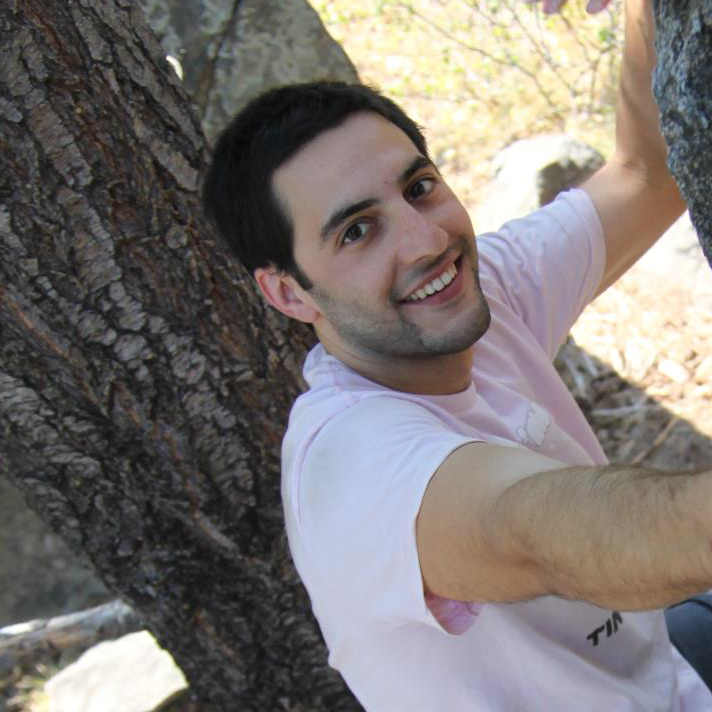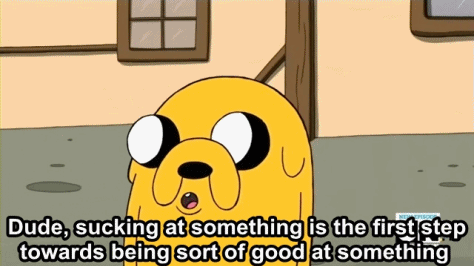15 Jan 2015
One of the best lessons I was ever learned was taught with the destruction of beauty. My ceramics teacher at the time, Jared Ward, had a beautiful teapot in his hands. It had a minor flaw that only he could find and he asked the class a question. “So what do you do with a pot like this?” Jared, my instructor, asked the class. Repeating an oft-said phrase from the studio, I replied,
“If you’re any good, you’ll make another one.”
As I said this, Jared let the pot slide from his hands and shatter against the concrete floor. I couldn’t believe it. This was the product of hours of painstaking work and years of expertise.
When I first began to work in clay, everything I did was new, and because I had little understanding of ceramic aesthetic conventions, I had no reservations about experimenting with new techniques and materials. I knew I sucked, I had nothing to lose. Then, as I became more proficient and more knowledgeable about the field, I also became more afraid of failure and more anxious about the disappointment it would bring. The better I became, the more time and care I was able to invest in each piece and the more it hurt to lose that investment.
Consequently, I lost my ability to focus solely upon the process before me. I had become blinded by my assumptions of what beauty and craft were, and by focusing so exclusively on the final product, I had failed to realize that a finished form, alive as it might be, was simply the end product of a living, breathing, and ever-changing process.
I realized that I needed to value this process over everything else. Sometimes, you have to embrace a potential failure to grow.
The following week, a situation developed which crystallized this new philosophy. I had just thrown a very graceful and difficult form, and I was about to remove it from my wheel head when Jared invited me to test a new slip coating technique.
“No way, it’s perfect! And I might end up ruining it,” I replied.
“Joe, if you’re any good, you’ll just make another one,” he countered.
Touche, Jared. Touche.
He was right. I could always make another one, and here I had a chance to experiment and go beyond what was comfortable. Sufficiently chastised and recognizing the truth in his words, I turned back to the piece before me and began to make changes. I truly hoped that my end product would turn out well, but at the moment, experimentation was what was essential to my developing skill.
11 Jan 2015
To my dismay, I’ve noticed that my left hand hates me. It doesn’t seem to be a personal vendetta, but my left hand is recalcitrant, clumsy, and generally uncooperative. I’ve tried finding the source of its discontent and have come up with nothing. It could be the years that it has spent merely holding the paper while my right hand had the glorious task of writing, drawing, or doodling. It could be that it always wanted to throw a baseball instead of merely catch one (I honestly gave it a chance… but it can’t throw for the life of it). Or maybe my right hand has just been talking shit and my left hand is done.
Whatever the case, I have to work doubly hard to convince it to do things. And maybe that’s the point. Maybe it just needed a little extra love and a little more patience.
But, and I’ve seen it in my own renegade appendage, with practice, even a left hand can become useful. It takes some suckage, and sometime it helps to sleep on it to let skills filter through its obstinate nature, but it can become useful. I mean… I’m using both hands to type right now, so here we are.
I’m sure there’s a metaphor in here somewhere for something more substantial. It could be about dealing with people, or learning something new, or being patient when learning, but I’m gonna leave those as an exercise for the user.
Just know, when your left hand sucks at something, it’s nothing personal. It just hates you.
PS. If you’re a lefty you know what hand I’m talking about.
PPS. If you’re ambidextrous, I’m jealous.
05 Jan 2015
I like to learn. I’ve been taught a ton of stuff and taught myself some more, and my most helpful advice to anyone trying to learn something is
Be ok sucking
I’m not saying you should be perpetually happy with sucking, but recognize that most things you try to learn will not come easily. 99.99% of people sit down at a piano for the first time and suck. God forbid you try the violin.
Talent and skill are not things that magically appear, they are developed and honed through practice and a humble growth outlook.
As someone who has studied arts, I hate when people tell me they “can’t, because I’m not artistic”. Bullshit. My first drawings suck. I’ve spent hours and hours practicing and I’ve gotten better (not great mind you, but better).
You haven’t tried and you haven’t practiced. Or you tried once, realized you weren’t Michelangelo, and gave up. I’m gonna let you in on a secret. Michelangelo wasn’t Michelangelo the first time he picked up a pencil. His craft and skill took years to develop. I’m not saying he wasn’t better at it than you or I might be on his first try. However, we aren’t talking about anyone else, we are not comparing journeys (more on this later), we are talking about you sucking; no one else.
You need to be ok sucking to get better at anything. If you aren’t, you won’t try, you won’t practice, and you won’t get better. full stop.
01 Jan 2015
So… maybe making a resolution to write 250 words a day wasn’t the best project to start right before Christmas and New Years. I can see that now. But, this slow start demonstrates a truth about almost any resolution.
You will break it
I’m not hating on your willpower or the quality of your resolutions, but let’s be honest at some point in the future (which is a very long time) you’ll most likely break your resolution. If you committed to better eating, you’ll probably have a donut, not smoking - cigarette, exercise daily - you’ll miss a day. Whatever it is, it doesn’t really matter.
The key is what you do afterwards.
I used to feel that if I’d failed once in my resolution then I might as well stop trying to keep it because I had already broken it. I don’t know if I’m alone in this (I doubt it), but at some point I realized the flaw in what how I was holding myself accountable, and punishing (or rewarding) myself by dropping my resolutions. So then I figured something out.
Forgive yourself and move on
Once I stopped beating myself up about my failures, it became much easier to hold on to resolutions. Each one was no longer a rule that I was breaking, but was a guide to a better way of doing ____. So, even if I did miss a day or eat something I shouldn’t my resolution still stands.
22 Dec 2014
I watched the movie Palo Alto last night, and it made me feel things. I haven’t fully parsed out what all of those things are, but I’d like to discuss the mechanisms by which it accomplished this. This isn’t going to be a critique of the movie, but more of an exploration of how it seemed beautiful.
Also, this will probably make more sense if you’ve seen it.
While watching it, I found myself constantly referring to moments in my own life that reverberated with the emotional tone of the scenes.
The movie loosely follows a couple high school students around. We see them party and puke, kiss coaches and boys, smile shyly at the hint of first love and cry alone in a bathroom amongst uncaring gossip. There isn’t really a strong story arc, or climax, or crisis; we simply gain access to moments of life, decisions that at once seem fateful or inconsequential or oddly difficult. These moments are all rendered beautifully, and are presented with a refreshingly light touch of dialog. The emotions are hinted at, and we are presented with the skeleton of a story.
It’s this skeletal aspect of the movie that I find so beautiful. Here I am watching all these oddly significant moments that have gained all of their emotional power from my own life. The movie provides a context for my own experiences, and the slow pace of the film allows me to truly inject my experiences into the scenes. I remember that uncertainty of love, the slow flush and then rush of illicit touch, the awkwardness of communication, fundamentally disagreeing with the behavior of people that I thought I knew, all these little moments.
I didn’t only relive high school moments. The movie provided a skeleton for my experiences up until this day as all base emotions are timeless.
In many ways it reminded me of Hemingway’s “A Farewell to Arms”. Hemingway was able to flatly state elements of the world around his characters in a way that only become significant when you could really relate to their emotional state. I once had a discussion, in high school, with a friend who really didn’t like the book. My friend had never been in love at that point, and as a result, was bored by Hemingway’s dry descriptions of the world surrounding his lovers. I had recently broken up with someone and I was able to take Hemingway’s skeleton and hang my experiences from its bones. To this day that’s one of my favorite books.
Palo Alto does the same thing. It’s beautiful, slow, and sparse.





